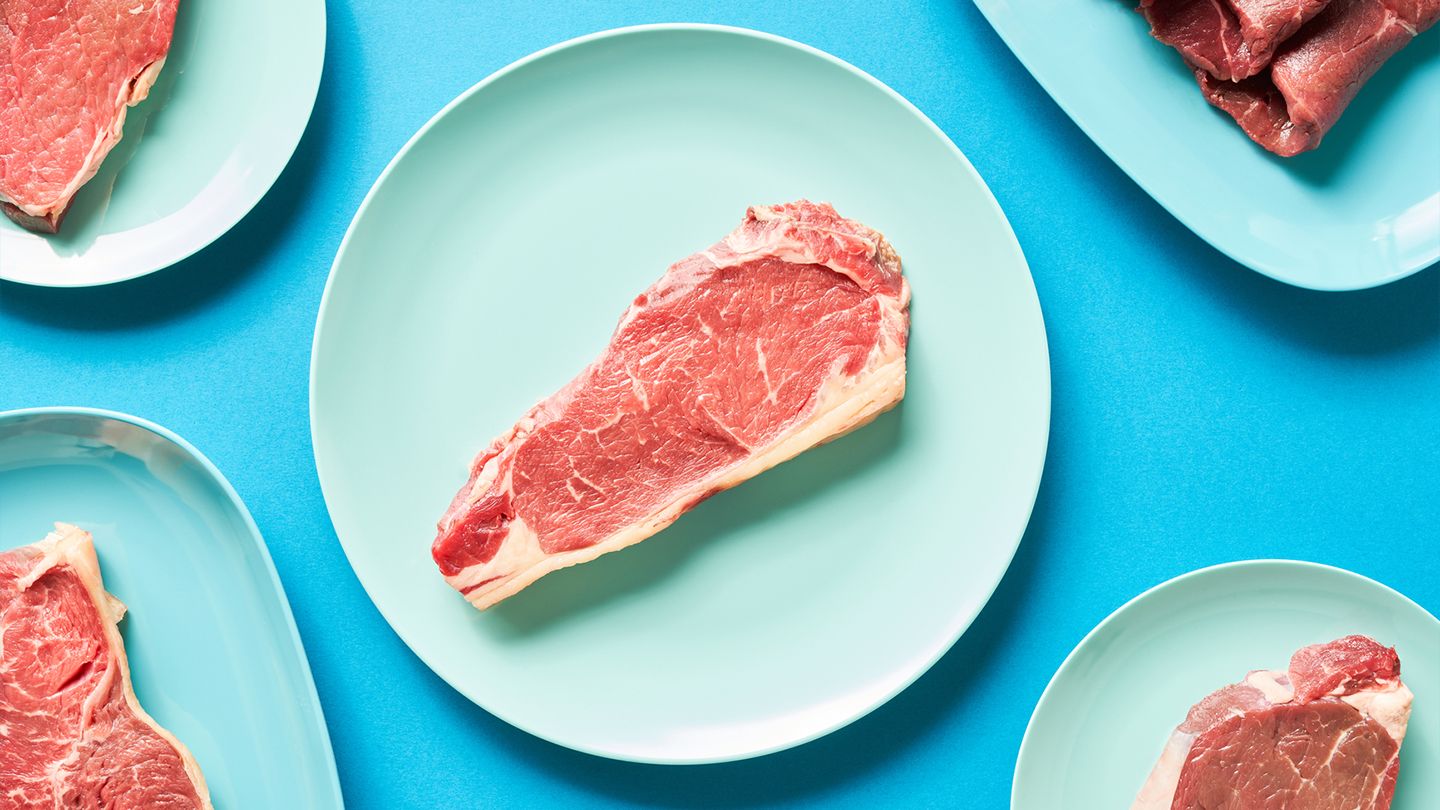“There’s no proven diet that will do anywhere near as well as the current drug therapy,” says Vinicius Domingues, MD, a rheumatologist at the Allergy, Asthma & Arthritis Center in Daytona Beach, Florida. “There’s no diet that’s going to put your arthritis in remission.”
But what you eat — or don’t eat — can make a difference. Here are some foods to avoid, because they contribute extra calories and provoke inflammation that worsens your RA symptoms.
1. Red Meat
Many cuts of red meat contain high levels of saturated fat, which can exacerbate inflammation and also contribute to obesity. Research has shown a link between saturated fat intake and RA. While it’s not entirely clear how saturated fat increases the risk of RA, inflammation and gut health imbalances are thought to play a role.
Adequate protein, however, is important for people with RA. It helps with muscle strength and function, and can also help you feel fuller, making it easier to maintain a healthy weight.
“Fish is a good alternative protein source,” says Dr. Domingues. Some fish, such as salmon, mackerel, tuna, sardines, and herring, are good sources of omega-3 fatty acids. Omega-3s have been linked to lower inflammation and may improve the feeling of tender and swollen joints, according to research.
2. Sugar and Refined Flour
Your blood sugar levels can surge after you’ve eaten simple carbohydrates that are easily broken down by the body. Such foods include sugary snacks and drinks, white-flour bread and pasta, and white rice.
A spike in your blood sugar prompts the body to produce pro-inflammatory chemicals called cytokines, which can worsen your RA symptoms if the inflammation affects your joints. These foods can also cause you to put on the pounds, stressing your joints.
Steer clear of refined carbohydrates, and opt instead for whole grains (in breads, pasta, and rice), along with beverages that don’t contain sugar.
One review of research recommended excluding sugar and sweeteners from your diet to reduce your risk for RA and inflammation-related symptoms. While the evidence, to date, doesn’t indicate that sugar causes RA, it does suggest a connection. Inspect food labels for sugar — remember it can also go by other names, such as fructose and sucrose.
3. Fried Foods
Cutting out fried foods can reduce your levels of inflammation, according to research, which has shown that fried foods contain toxins called advanced glycation end products (AGEs), which can increase oxidation in the body’s cells. Additionally, fried foods are high in fat and calories and can contribute to obesity. They can also increase your risk for heart disease, which is already elevated in people with RA.
As an alternative to fried foods, “try to use an air fryer whenever possible, and choose baked foods over fried ones,” says Domingues.
4. Gluten
Gluten, a protein found in grains such as wheat, rye, and barley, may contribute to inflammation in some people. The evidence linking gluten to RA isn’t conclusive. Research has found that going gluten-free improves inflammation in people with RA, but in one such study, eliminating gluten wasn’t the only dietary modification; study subjects also eliminated meat and lactose for three months. Anecdotally, people who are gluten-sensitive and go gluten-free often report feeling better. “If gluten causes a flare, staying away is the best option,” says Domingues.
5. Alcohol
The effect of alcohol on rheumatoid arthritis is not clearly understood. While some research has suggested that moderate alcohol consumption (two drinks or less a day for men and one drink or less for women) can decrease the risk for RA, it’s not clear that the benefits of drinking outweigh the risks. Especially if you’re taking RA medication that affects your liver.
Most medications are metabolized by the liver, and therefore, alcohol consumption should be avoided if one is taking methotrexate, for example, to maximize liver function, says Domingues. Nonsteroidal anti-inflammatory drugs (NSAIDs) can also increase the risk of stomach problems, such as bleeding and ulcers, when you drink.
Research has also linked moderate alcohol consumption to an increased risk for osteoporosis, which is important because people with RA are already at a greater risk of osteoporosis. In one study, people who consumed 1–2 drinks per day had a 1.34 times higher risk of osteoporosis than people who didn’t drink, and people who consumed two drinks or more per day had 1.63 times the risk of developing the condition.
6. Processed Foods
Processed foods, such as supermarket-shelf snacks like chips and cookies, meals that come ready-to-eat or require minimal cooking, and sugary sodas and drinks, tend to be loaded with ingredients that cause inflammation. Such products or packaged convenience foods are often packed with sugar, refined flour, salt, and saturated fats — all making the food easy and irresistible but also unhealthy.
Always read the Nutrition Facts label and the ingredient list on processed foods to make wise choices that won’t aggravate your rheumatoid arthritis symptoms.
As you work to improve your diet, remember that researchers have not been able to agree on a standard RA diet, and a change in the foods you eat isn’t a substitute for treatment. Instead, think of these adjustments as steps to better RA management and overall well-being.
The Takeaway
- There’s no specific diet for rheumatoid arthritis, and dietary changes alone aren’t a substitute for RA treatment. But what you eat — or don’t eat — can have an effect on your joint pain, inflammation, and other RA symptoms.
- It’s important to avoid foods and beverages that promote inflammation and lead to weight gain, which can stress joints.
- Keep an eye on your intake of saturated fats, found in processed and fried foods, as well as red meat.
- Choose whole grains over refined carbohydrates (white flour breads, pastas, and rice) and limit sugary snacks and beverages, as well as desserts.
- The effect of alcohol and gluten on RA isn’t entirely understood. But if you take certain RA medications, it’s important to avoid drinking. And if gluten triggers a flare, try going gluten-free.




